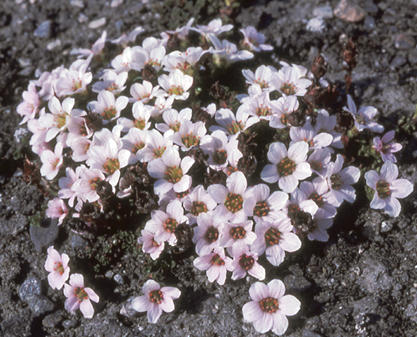Master's studies
The EECRG welcomes MSc students

Main content
Our work within the Ecological and Environmental Change Research Group (EECRG) focuses on three subject areas:
i) Ecological and evolutionary processes: What are the abiotic and biotic processes that underly biodiversity patterns? We work at the interfaces of evolutionary ecology, experimental ecology, macroecology, and palaeoecology to address this question.
ii) Biodiversity and ecosystem dynamics under global change: We focus on land management, climate change effects on biodiversity and ecosystems, and contemporary evolution.
iii) Socio-ecological systems: What are the interactions between social and ecological systems? We have a special focus on UNESCO designated Biosphere areas, ecosystem services, and nature-based solutions.
We are a large research group with nine permanent members of staff, all of whom manage their own research teams. A master's project in our group offers a diverse set of opportunities such as field or laboratory experiments that identify drivers of biodiversity or evolutionary change, reconstructions of long-term ecological processes using ancient pollen grains, and mapping land-use changes and social values related to ecosystem services and sustainable development. This work can be done in different biomes (arctic, alpine, temperate, desert, tropical), but mainly in terrestrial ecosytems, and at different geographical locations (across Norway, and in many other localities around the world).
What pulls us together as a group is a focus on (the effect of) environmental and ecological change on species or ecosystems and the collaborative effort to develop good field and statistical methods to enable us to answer complicated questions using "real" field data. Most of us collect our own data in the field, but some use data collected as part of larger projects or from databases.
The EECRG believes that the best master's projects are developed in collaboration between the student and the supervisors. The challenge is to find a specific topic and research system that interests the student and where the EECRG has research interests and expertise, and design a good master's thesis project that will give the student an interesting and challenging research experience in all phases of the work, from data collection via analyses to write-up.
EECRG MSc activities / support: weekly research group meetings, where ongoing and future research in the group is presented and discussed; R-coding club; research group parties; social activities.
We have a policy of supporting student participation in at least one international scientific conference (financial support can be applied for) and we encourage and support (but do not demand or guarantee) the development of master's projects that will be publishable in the scientific literature. We think of the publication process as an important (and fun!) part of the scientific experience that a master's education should be.
We encourage possible students to visit the webpages of the specific research teams within EECRG to find out more. If you have a good idea for a project that fits within the research of the group, please come and discuss it with us - we are mostly located on floors 3 and 4 of block A of Biologen, Thormøhlensgate 53A or can be contacted by email.
Research teams
Animal Ecology: Understanding species interactions (host-parasite and plant-pollinator) in a rapidly changing world (Adele Menneret/Ørjan Totland)
Between the Fjords: Ecological processes and drivers using field experiments in mountain landscapes (Vigdis Vandvik/Richard Telford)
Palaeoecology: Using ancient pollen grains (and other proxies) to reconstruct past changes in biodiversity and its drivers and investigating pollen chemistry (Anne Bjune/Alistair Seddon/Richard Telford)
Mountains: Big data analyses of biodiversity change in mountains (Suzette Flantua)
UNESCO Chair: Socioecological systems research into sustainable heritage and environmental management (Inger Måren)
Global Change Ecology: Researching relationships between land use, biodiversity, ecosystem functioning and ecosystem services (Pete Manning)
Compulsory courses for a master's degree
| Semester (year 1) | |||
| Autumn | Bio201 Ecology (10 credits) | Bio300A Academic writing (5 credits) Bio300B Biostatistics (5 credits) | Bio301 Current topics in biodiversity, ecology and evolution (10 credits) |
| Spring | Bio210 Evolutionary biology (10 credits) |
Recommended courses for a master’s degree
20 course credits in the master's programme are elective and have to be chosen in agreement with the supervisor.
BIO230 Plant Systematics, Morphology and Evolution (10 credits, Spring & Autumn) starts in June, ends in August (even-numbered years)
BIO250 Palaeoecology (10 credits, Autumn)
BIO303 Ordination and Gradient Analysis (5 credits, Autumn)
BIO332 Phylogenetic Methods (5 credits, Autumn)
SDG214 UN Sustainable Development Goal 14: Life below Water (10 credits, Spring)
SDG215 UN Sustainable Development Goal 15: Life on Land (10 credits, Spring)
EECRG leader Alistair Seddon

